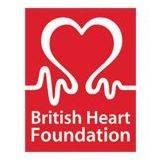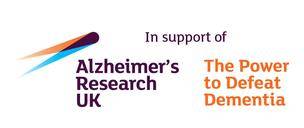Editor - Rebecca Foulger:
I'm pleased to take on the role of editor for our first newsletter of 2016!
Gene Annotation and Ontology Development: Autophagy and Wnts
In our last newsletter, we reported our addition of 85 autophagy annotations to 14 human proteins. With Paul's continued curation in this area, this has increased considerably to 373 autophagy-related annotations to 299 proteins, covering 214 human proteins. Most recently, Paul has been concentrating on chaperone-mediated autophagy (CMA) and microautophagy. The latter has been well characterized in yeast, with the literature revealing a related mammalian process in which cargo degradation occurs in late endosomes instead of lysosomes. This led to a number of changes to underlying GO terms (thank you to the GO editors), the principal ones being the renaming of 'microautophagy' to 'lysosomal microautophagy' and the creation of a new term 'late endosomal microautophagy'. Other highlights in the autophagy node of GO include new terms for the CMA translocation complex and its assembly. This receptor complex is a multimer of LAMP-2A that transfers a target protein across the lysosomal membrane. LAMP-2A is a key player in CMA, and has been proposed as a therapeutic target in Parkinson's Disease (PMID:24145820).
I have been completing my curation of Wnt signaling. Given the vast literature on this topic, I focused on the role of Wnt signaling in dopaminergic (DA) neuron development, covering both the canonical (via beta-catenin) and non-canonical routes. Once again literature review resulted in a set of new GO terms including 'Wnt signalosome' and 'beta-catenin-TCF complex', with a term for 'midbrain dopaminergic neuron differentiation' in the pipeline. Topic-focused approaches are beneficial for ontology development, and the total for new GO terms contributed by this project currently stands at 290 (and rising). It's important to keep GO aligned with the other resources available, and we will look to align Wnt signaling GO terms with the Parkinson's disease map (PD-map) and Reactome, creating cross-references where possible. We have also created links to Wikipedia from the GO term for CMA, and we will expand on these Wikipedia links in the future.
Our annotation continues to prioritise human proteins, and we have also prioritised research funded by Parkinson's UK. The overall annotation count for the project so far (December 9th 2015) is 4920 GO terms associated with 1167 proteins, including 3134 annotations to 713 human proteins. This means in the two years our project has been running, we have contributed 1% of the manual human annotations, covering 3% of manually-annotated human proteins.
Community Engagement
Our teaching of bioinformatic resources in the UCL 'Genetics of Human Disease' MSc. culminated in student presentations at the end of last term. We covered a number of databases and resources including Reactome, Ensembl, IntAct and Cytoscape, and included a range of GO analyses from small-scale queries to analysing high-throughout data.
Meetings Attended
Ruth attended a GO Consortium meeting to discuss visualisation of GO annotations and extended annotation information, and to learn how to use the related Noctua curation tool.
Community Feedback
We're keen to receive suggestions on where you consider we should be prioritising our annotation efforts this year- please get in touch with priority topics, papers or proteins. Also to note: during curation, we can only attach annotations to proteins where the species is known. In many articles this information is clear or is traceable but for papers where it is ambiguous, we often contact authors to gather this information. We appreciate all your replies so far, and look forward to receiving more! We also often contact the corresponding author when we have finished curating your paper; if you have any questions about annotations based on your research, please contact us!
Publications
Our manuscript providing a project overview has been accepted by Neuroinformatics and will be available soon: we shall keep you posted.
Please contact us to receive this quarterly Newsletter by email
 Close
Close








